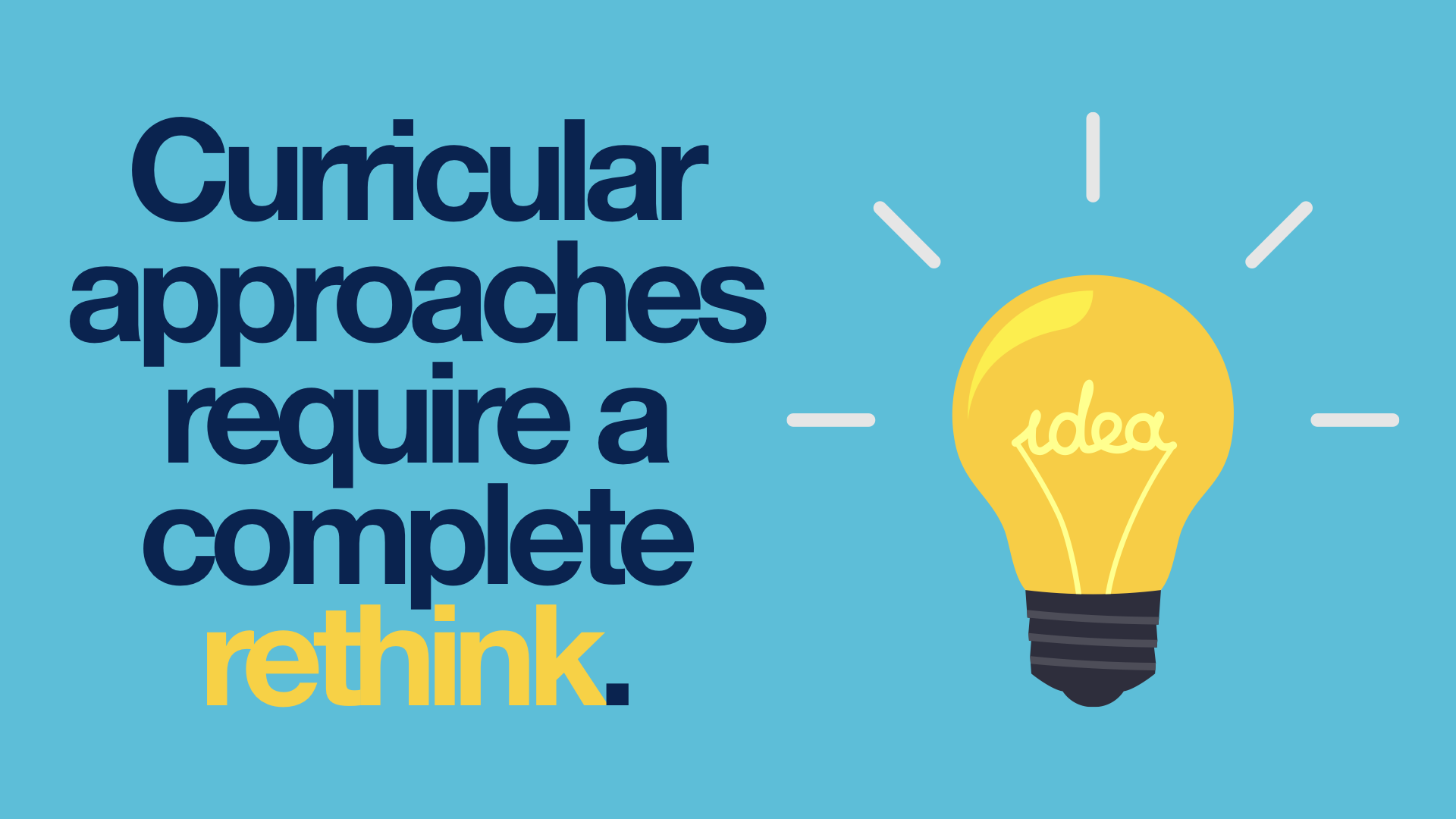As you embark on developing a curricular approach for your division or your department there are a few key concepts that you should keep in mind. Think of these as a set of reminders and guiding principles. They represent the core of the philosophy behind the curricular approach.

Curricular approaches are focused on learning.
One thing curricular approaches always come back to is learning. Student learning. How are you impacting student learning? What do you want students to learn? How effective are you in teaching students what you want them to learn? Creating a campus community of engaged learning forms the heart of our work. Make sure you develop your curriculum and examine your practices through the lens of student learning. If something doesn’t contribute to student learning, should you still continue to pursue it? There are many other goals you may have that are not explicitly about learning per se, but contribute to learning, such as your community building efforts. Be mindful of these efforts as well.

Curricular approaches are unique to you institution.
In order to be successful, a curriculum should be tailored to the unique realities and culture of your institution and its students. You cannot copy another institution’s curriculum and use it at your own. The characteristics of your students are different. Your institutional goals are different. Your campus culture is different.
While there are some common outcomes that are relatively universal across higher education, how the outcomes are written and how they are understood can be very different depending on the context. Additionally, within these outcomes there may be different areas of emphasis that are necessary. Look to other curricula and standards as guides, but develop something uniquely your own.

Curricular approaches are research and data driven.
Curriculum should be grounded in what we know about student development and student learning. In order to be effective in developing a curriculum, your staff should possess a solid understanding of theories and research. This has implications for how you hire and train staff members and also the professional development you provide to them once they are working with you. Making sure you’re continuously reviewing the foundational theories and research that inform your curriculum. This should be clear to all staff and new staff members should be onboarded appropriately.

Curricular approaches are intentional.
Intentionality requires you be specific about your outcomes and design strategies and interventions to achieve them. By utilizing a backwards design process, from outcomes to practice, you can better ensure you are achieving the outcomes you wish to achieve. During the design process, consider how you will assess your objectives. If you cannot assess or measure your outcomes, you should revisit and revise your objectives and strategies.

Curricular approaches require a complete rethink.
Old models and old programs need to be re-thought in light of curricular concepts. Often times this requires a different way of thinking than you may have been trained in or have practiced throughout your professional experience. Beginning from scratch can help you understand how to design things as if you were designing a university for the first time. Your knowledge is still important, and still applies, but you’ll be utilizing it to inform something that you’re building from the ground up.

Everyone must be bought in for a curriculum to be effective.
One person alone cannot develop a residential curriculum. Since all of your staff members are educators interacting with students, they must all understand and be invested in the curriculum development and execution process. This is part of the “complete rethink” required for a curriculum. Although one person, or a select committee, may be the driver of a curriculum. Everyone needs to be involved in its creation.

Developing a residential curriculum takes time.
Developing a residential curriculum is not something that can be done in a few months or even a year. Developing an effective residential curriculum often requires one to spend multiple years investing in the process. Curricular change is also organizational change and organizational change and culture change take time. Typically, it will take an institution embarking on a curricular approach about three years before they believe their curriculum is on a solid footing.

Experiment, prototype, and test out your curriculum.
When keynoting one of the Institutes on the Curricular Approach, Charles Schroeder encouraged institutions to “launch at 40%.” What he meant by this was that institutions often try to develop the perfect program or the perfect experience for students without prototyping experiences to learn what works and what doesn’t. The idea of “launching at 40%” is helpful for schools as a reminder. Not everything needs to be perfect right out of the gate. Experiment to find out what works, what does not, and then make it better over time.

Celebrate failure. It’s a learning opportunity.
Consistent with the idea of launching at 40%, learn to celebrate failure. Controlled failure can help you to do better. If you try something and it doesn’t work, analyze it and figure out how to improve it or recognize you might need an entirely different approach. Bring this concept to your staff as well. By empowering staff members to make informed risks and choices, you can achieve greater outcomes. Failure and experimentation are important part of the curricular process.

A curriculum is never “done.”
Finally, recognize that continuous review and improvement never ends. A curriculum is never truly “done.” You may get better and more successful with your curriculum over time, but your institution and your students aren’t static. This can include new leadership at your institution and new institutional goals, or changes in your student demographics or population. Your goals, outcomes, and pedagogy are therefore also not static. They will evolve over time. While certain concepts might be more but durable than others, there are ways in which you may have to rethink your pedagogy and practice. Just because one strategy might have worked in the past does not always mean it will be as effective in the future. Ensuring you have a regular review process of your goals and outcomes, as well as your practice and pedagogy, is essential.
